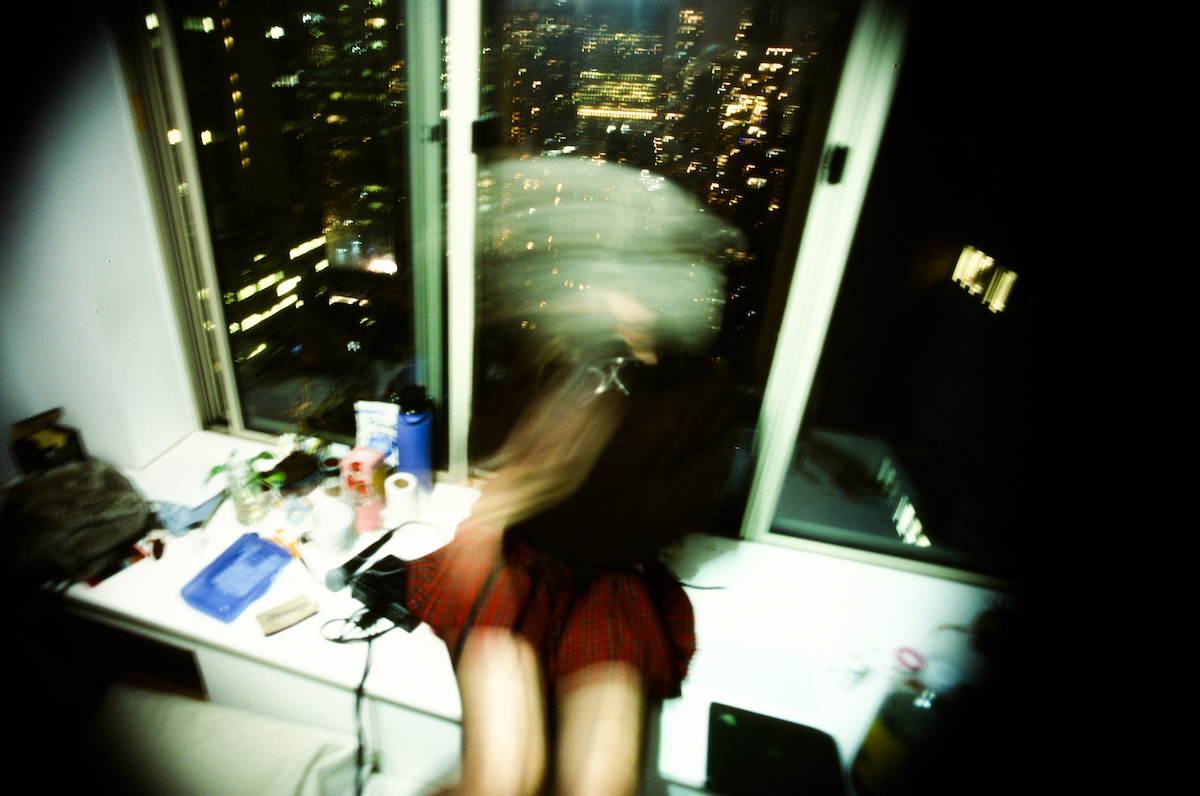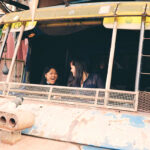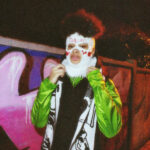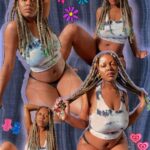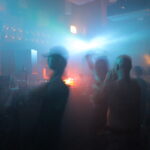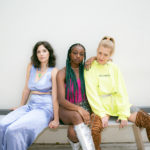Daytime music by Speedy Boarding (@speedy.boardingg) and Kakao Katze @kakaokatze_ and performances by Kei Watanabe…
Father Koi
Interview with the NYC-based songwriter, producer, and multi-instrumentalist blending 90s alternative and hyperpop sounds10 April 2025
“Father Koi” is the moniker under which nyc-based songwriter/producer/multi-instrumentalist Kara releases electro-dreampop music for fans of vintage manga, 90s video games, and the heyday of FRUiTS™ magazine. YEOJA Mag sat down with the artist to talk about her new EP, “talk sweet, strike gold”:
Hey Kara! Can you please introduce yourself to the YEOJA community for those who might not know of your work yet?
Kara: Hey and thank you so much for having me! I’m Father Koi and I make a blend of electronic pop and alternative, which I also write and produce on. I also like drawing, sewing, and scrapbooking.
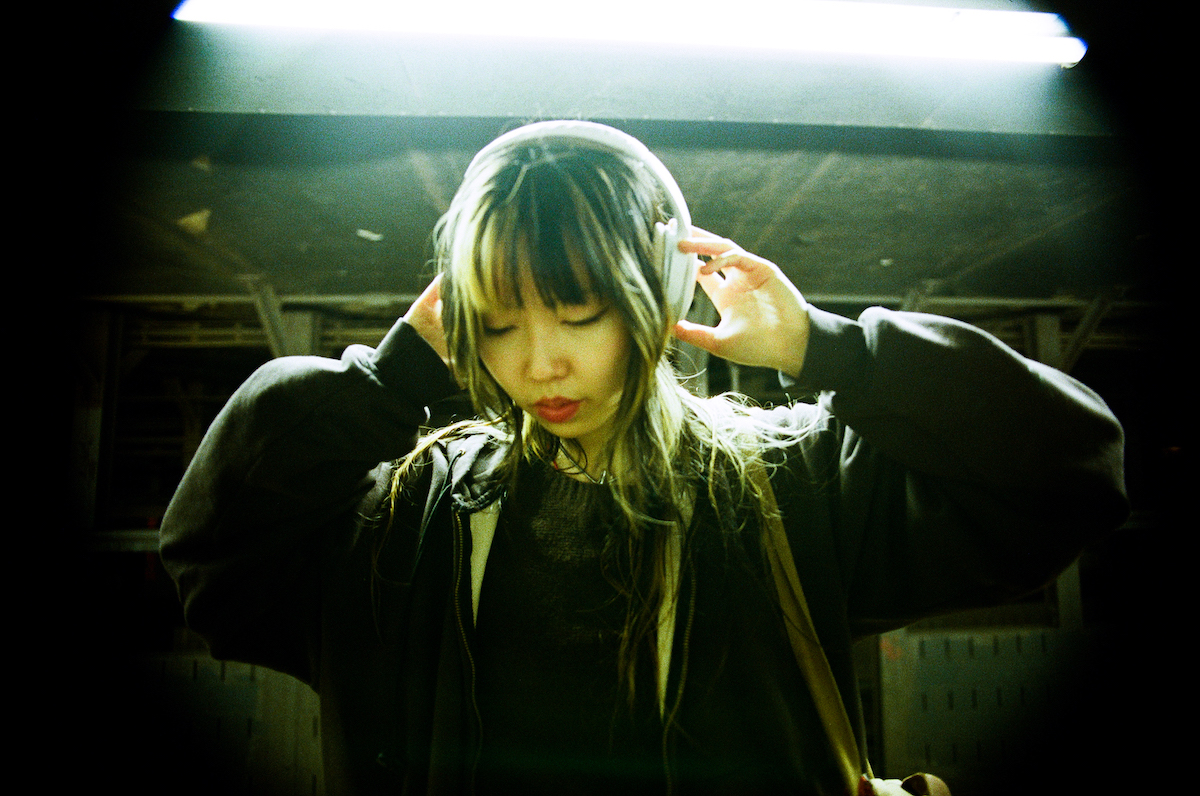
Your new EP, “Talk Sweet, Strike Gold” just came out the other week (March 21st)! What was the experience like putting this all together, and how does it feel now that the “end product“ has been released into the world?
Kara: This project has been a long time coming – over a year now – and I actually didn’t know it would accumulate into an EP. The songs that took the longest were “lovesong” and “rootless,” which were originally demos from 2021. I took [them] to my old band when we were jamming one day. There was a moment when we hit the chorus of “lovesong” and my drummer Ben was like, “Oh, YES!” because it just hit so hard. I think it was then that we all said, “We need to record this.” At that time I was working on an album too, but that got scrapped because it was too much to do.
So we went to the studio to record “lovesong” and “rootless.” That was my first time really ever recording music in a studio. Everything I’ve done up until this point has been done “bedroom pop” style – either in my own room or at one of my friends’ places. The other two songs on the EP, “locket” and “golden,” were done this way, but the live instrumentation is still there in those two as well. It was just recorded directly into the DAW (digital audio workstation) and effects were added directly in it.
It feels really good having the EP out now. This project definitely leans more 90s alternative, and I’ve been writing a good amount of dance/2000s sort of pop leaning songs. So it does feel good to sort of umbrella these 4 songs into their own project.
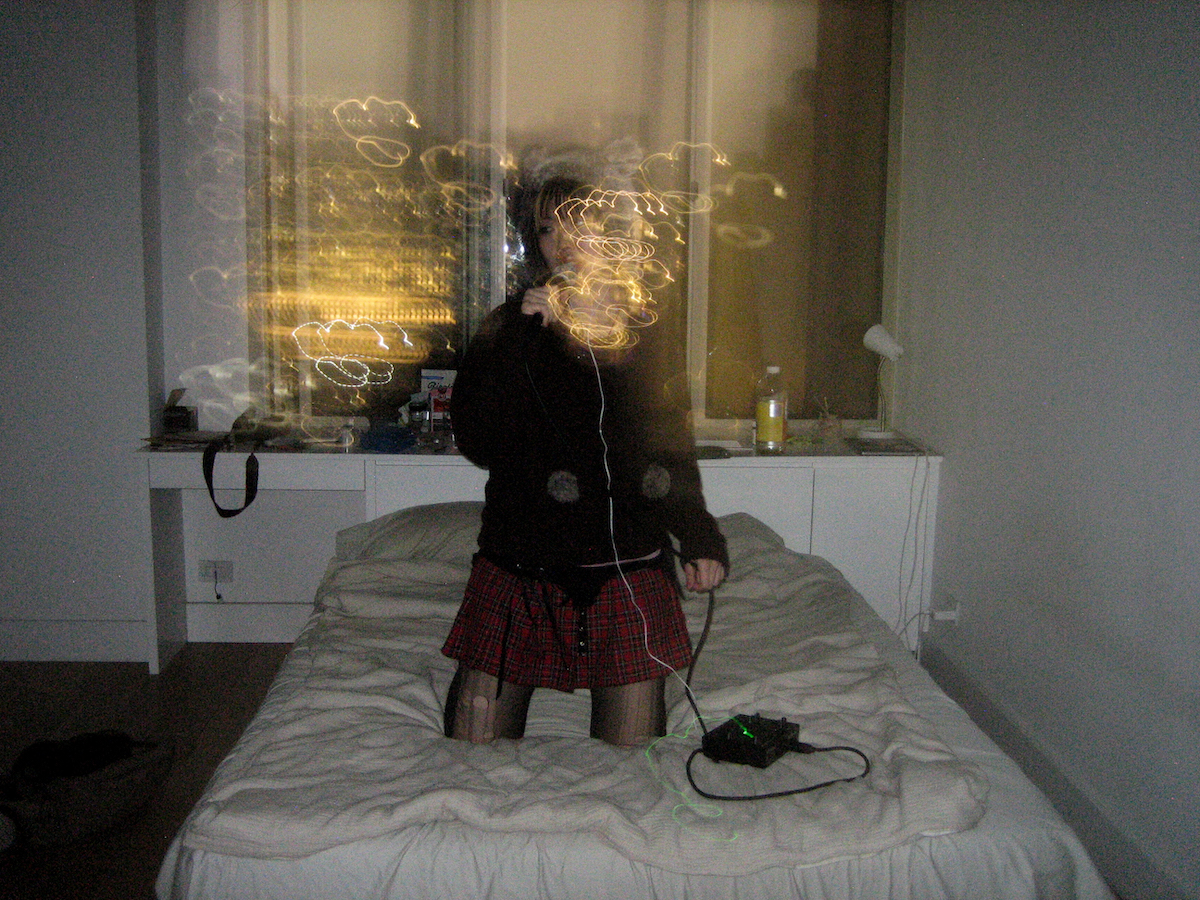
How do you feel this EP differs from your previous work on albums like “everything is a dream, but it is your dream” (2023) and “Late Afternoon National Anthem” (2020)?
Kara: As mentioned above, definitely the live instrumentation – I have to shout out Theo Rogers, my co-producer on “lovesong” and “rootless,” for this. I’ve never really worked with live unmixed stems like what we got back from the studio. It was cool working with him though because he showed me how one could work with stems like this and I got to show him what I do with music that’s primarily made on a DAW (digital audio workstation). I showed him how I reverse a crash into a riser. He was showing me different live snare sounds and guitar effects, and we both re-pitched a bunch of stuff, which to be honest, probably added to the more electronic aspect of the EP. We had a lot of fun with it.
Genre-wise I feel like this is what “late afternoon national anthem” could have been had I had more resources and known more people. I’m not demeaning the project in any way – I’m very proud of it – but sonically they’re very similar! Looking back, it’s honestly really cool to see me sort of come full circle and take this genre to another level.
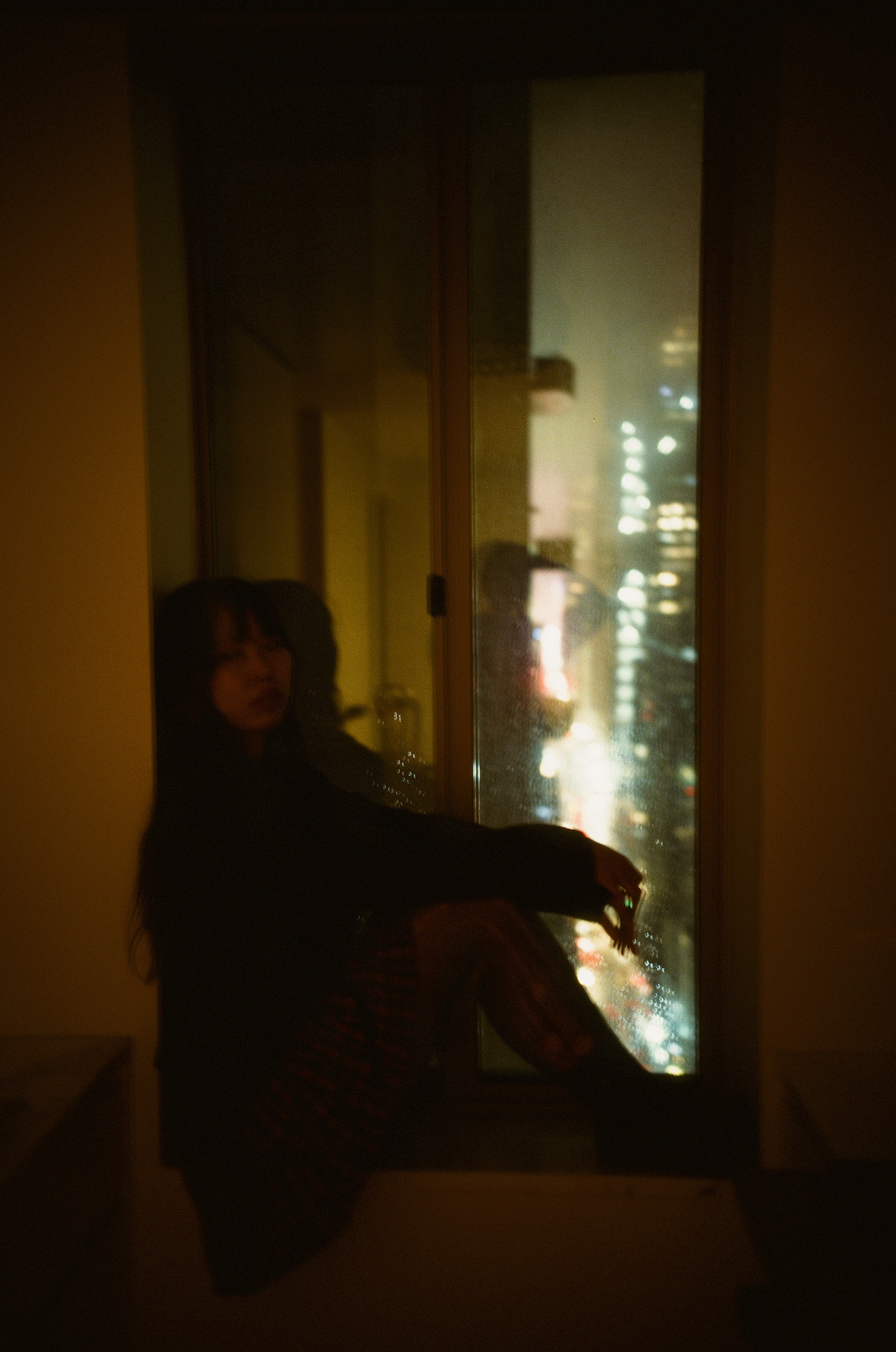
How do you feel you have developed as an artist since your first live show at Vassar back in 2021?
Kara: In the same way I feel like I’ve grown so much, I also feel as if there are still so many things I don’t know. I think in some ways being an artist is like riding a bike, or so they say. Someone can tell you how to ride the bike but you don’t know what it’s really like until you’re doing it. There are many days where I feel like I don’t know what I’m doing. But when it really comes down to it, you just need to create what you love and remind yourself why you started music in the first place.
Concretely, I do see changes. I’m a better performer on stage, I know how to do more production-wise, and I’ve met so many fellow artists/musicians from different scenes, which to me is one of the coolest parts of being an artist. It’s really exciting that there’s more to come, and there always will be.
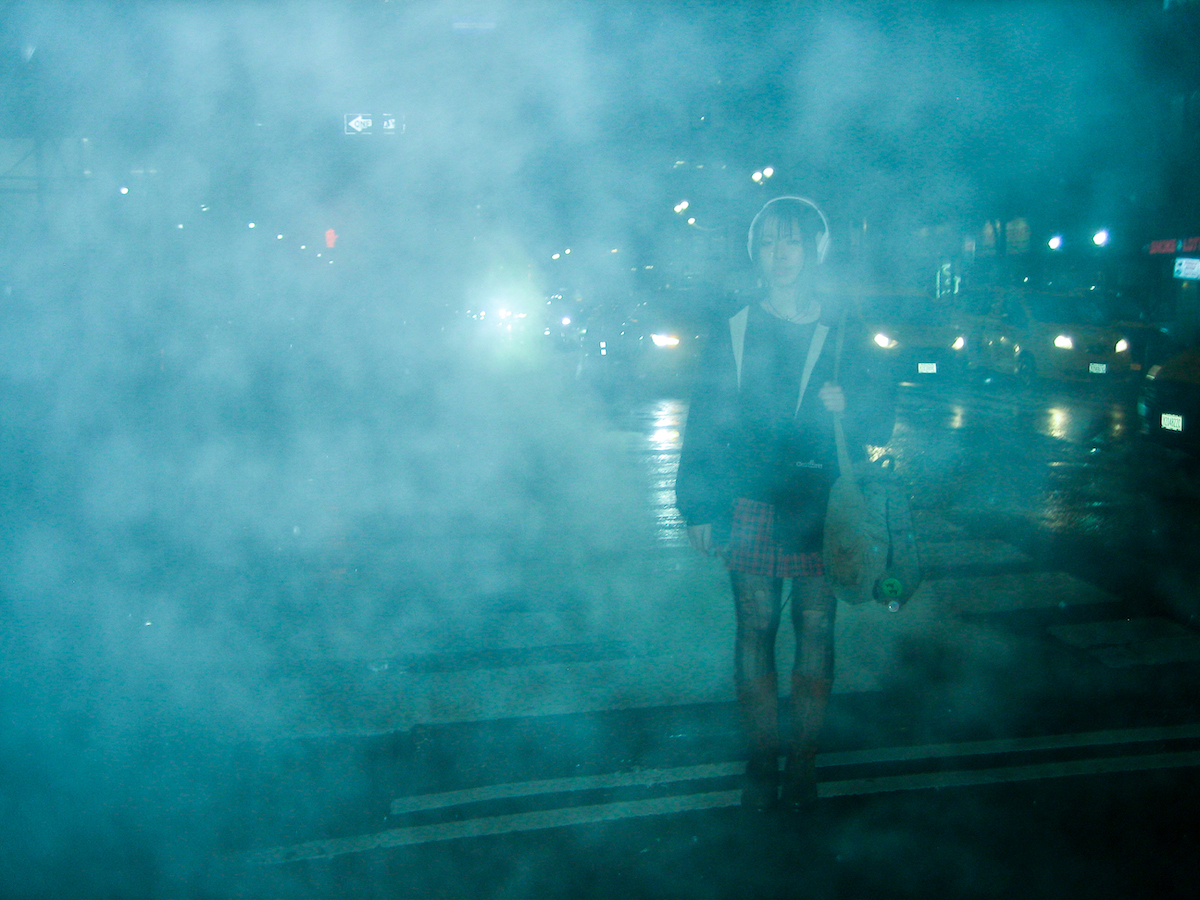
The blend of hyperpop and singer-songwriter elements in your music seems perfect for fans of artists like Samia and 8485 which seems relevant in the sense that a lot of vulnerability and longing can be found in all three of your voices and lyrics. Would you say these elements are what has drawn you into the musical world of hyperpop and heavy indie-pop female vocalists?
Kara: Honestly, subconsciously, yeah. I first started writing music because I liked the way I could express how I feel not just through words but through the way the music is composed, through things like chord choices and what synthesizer you’re using. I first started writing indie music, but there was just something about hyperpop that drew me to it when I found out about it in 2020, when my friend Andy showed me the “how i’m feeling now” album. I loved how Charli xcx could get so vulnerable through what to me at that time was this completely new genre of music.
You have a long history with the piano – having started playing at age 6 – with other instruments organically getting picked up along the way (guitar, bass, your voice, digital instruments and production).You have also spoken about your early love of the Beatles as well as being introduced to electronic-based music and production along your musical journey. Is this combination also possibly responsible for the way you elegantly move back and forth between
Kara: I think I could say yes. I can’t speak for everyone, but when I get stuck on something, I reach back into what I know, and that’s piano and the music I grew up on. So now I work with both genres.
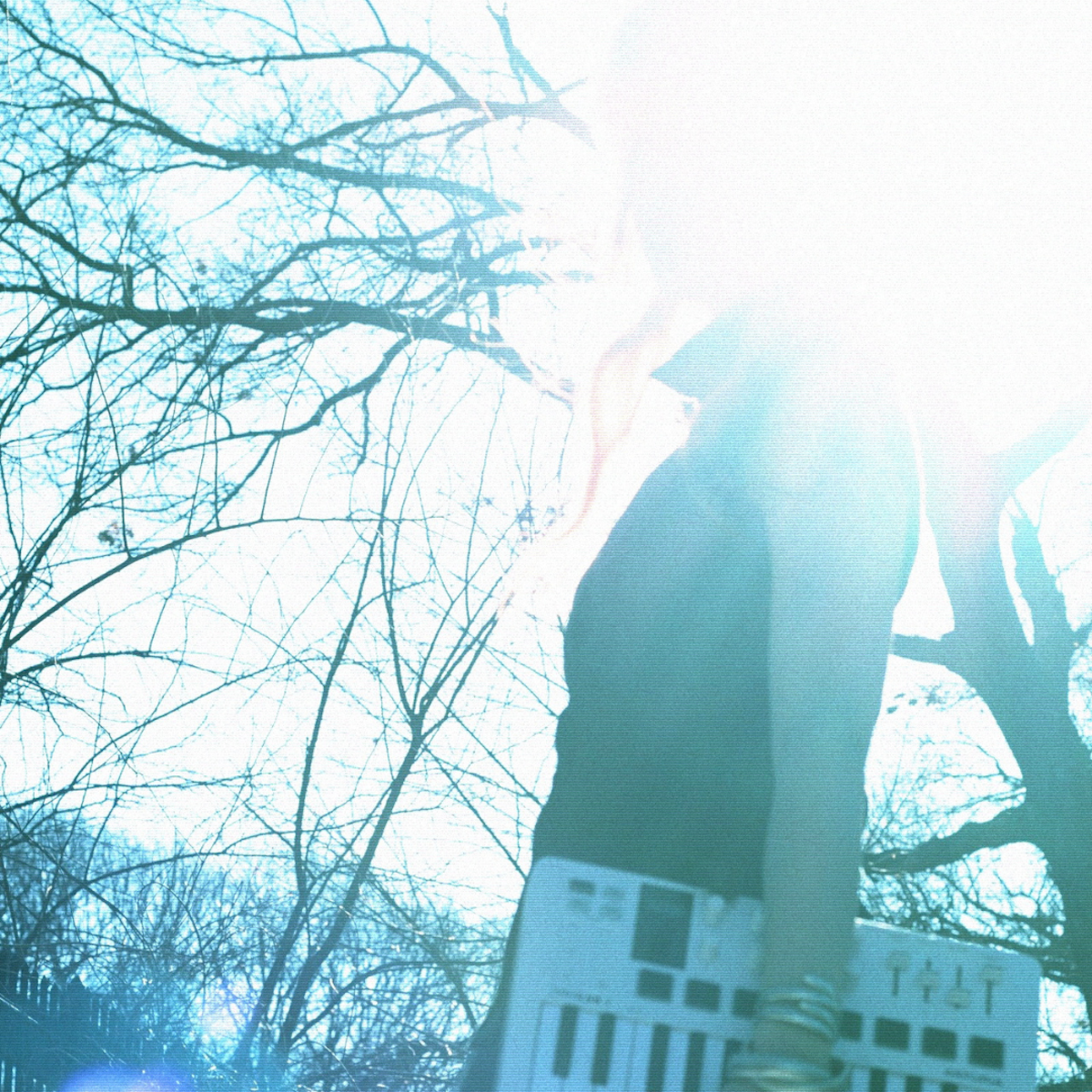
You speak a lot about the role that nostalgia plays in your music. You are someone who is born and raised in NYC, and is currently still living there – a city where there seems to be a lot of references to the old NYC, particularly as spaces like Williamsburg have had huge gentrification “makeovers” (or -unders, depending on how you look at it) and spaces like Bushwick seem to be in the throws of the gentrification process. While a lot of your “Sehnsucht” for the past comes from older 90s east-Asian media — a period you did not directly experience — as someone who has directly experienced New York’s countless iterations, has New York’s collective identity and the role that a yearning for the past has had on this identity also influenced your music and interest in nostalgia?
Kara: To be honest, as a kid I kind of lived in my own head a lot. And I lived out of the country a few years growing up. But probably subconsciously feel those changes. Like I went to high school in Long Island City. It used to be this super industrial part of Queens. And now there’s a Trader Joe’s and it’s full of high-rise apartments.
I just think nostalgia is a very bittersweet yet comforting feeling and for some reason I’ve always been drawn to it. Some things that indirectly influenced my music are Saturday morning brunches in Flushing when I was a kid. The toys from the dollar store my grandmother would bring over to our house. The 2000s influence in general – things like Lisa Frank and trinkets that I can just see if I’m at a thrift store and know they’re from the 90s. I know these things aren’t music. But I think my music evokes the way I feel about them, in some way. So I guess it was my own version of New York that I’m inspired by.
I love living here and always have. I think if I didn’t grow up here I would probably have found my way here.
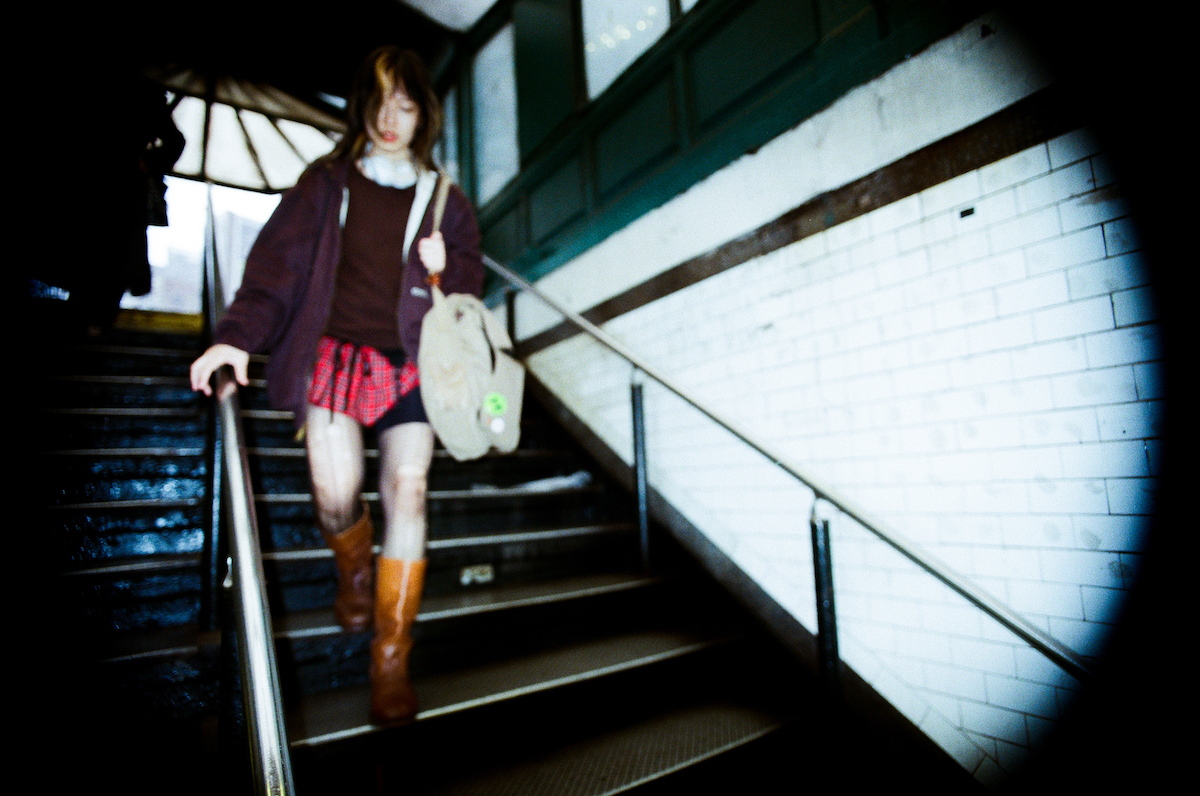
What is it like to have nostalgia and a longing for something you did not directly experience? Do you think this results in a more romanticized version of your understanding of this period? In what ways could this be a strength? How do you think your experience of this nostalgia differs from that of someone who grew up in the time and space of 90’s East Asian pop culture?
Kara: I mean, I think I grew up at the tail end of this time period. Like when my grandmother would bring over things like Hello Kitty sticker sheets and, I remember, these piggy banks that the bank gave out for free, distinctly in these pink and yellow plastic colours that looking back were so represented by the turn of the century. For sure I think I somewhat romanticize that, as with a lot of things. Nostalgia literally comes from the translation “return home / pain,” and while I see it as a strength in terms of something that I can use to create art with, one also needs to be careful to not let it sweep you away.
Visually, a lot of your influences play homage to Japanese street style of the y2k era (FRUiTS magazine) as well as the golden age of tumblr – which seems highly appropriate for the kind of music you are making, as one could argue the subcultures attached to these genres really developed in online communities rather than predominantly developing in physical spaces like pre-internet underground genres directly associated with lifestyles – punk, grunge, goth, etc.. How much does the internet, online space, cyber culture, and the cyber community inform both your music, and personal life? What does cyber and the internet mean for you and your work?
Kara: I don’t think Father Koi would exist without the internet. I mean it would probably, but so much of my interests / friends / parts of who I am now are shaped by online spaces. It was during the pandemic that I began posting fashion content on TikTok and meeting friends there, friends who I could meet up with IRL. It’s funny, music was a secondary thing back then. I was more “known” on TikTok for things like showing what I was wearing. But just last year in 2024 when I locked in on making music I met an incredible amount of musicians, who I can safely say probably met each other online first. I guess my community right now is made up of a mixture of both online and the experience of living in New York, because chances are if you meet someone online, they’re either living here or will pass through here at some point.
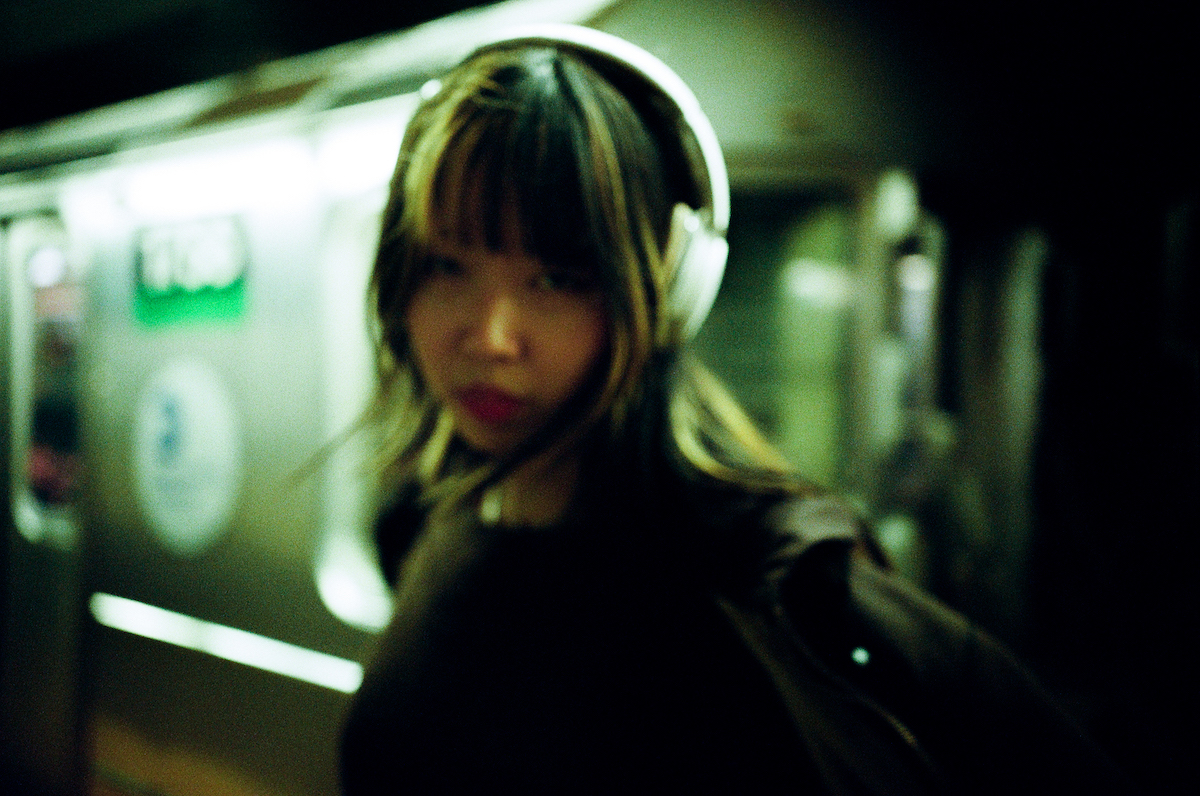
Now that you have released “Talk Sweet, Strike Gold” into the world, what is next on your artistic and personal to-do list for 2025?
Kara: I’ve been writing a lot of new music and hope to release some of it soon! Keep an eye out for it in the next few months and thank you for reading ^____^ hope you all like the EP ˗ˋˏ ♡ ˎˊ˗
_
Photography: Isaac Kau and Tachie Menson
To follow Kara on Instagram, click here. For more interviews with NYC-based creatives, click here. If you would like to read more about others from the Asian Diaspora Community, click here.



